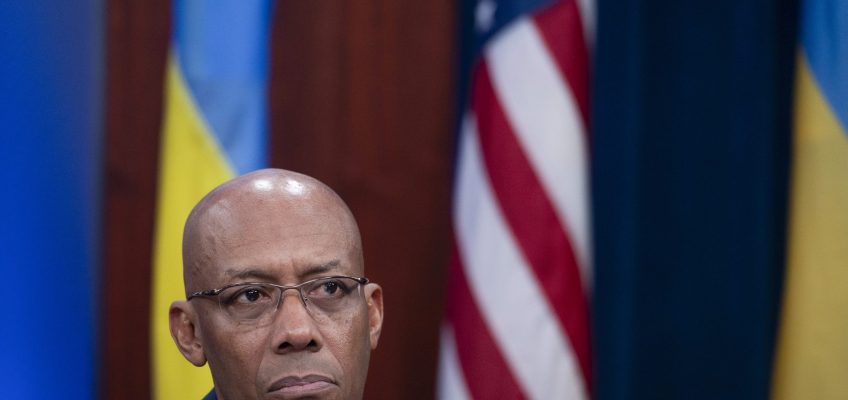Gen. C.Q. Brown, chair of the Joint Chiefs of Staff, spoke to his Chinese counterpart Gen. Liu Zhenli on Thursday morning, ending a nearly year-and-a-half impasse between the two militaries, the Pentagon announced.
Brown is the first senior U.S. military official to speak with his Chinese counterpart since the two countries’ leaders agreed in November to resume military communications after China froze all talks in retaliation for then-House Speaker Nancy Pelosi’s visit to Taiwan in August 2022. The two spoke during a video teleconference on Thursday morning, according to the Pentagon.
Brown and Liu, China’s chief of the Joint Staff, discussed “the importance of working together to responsibly manage competition, avoid miscalculations, and maintain open and direct lines of communication,” according to a readout provided by the U.S. Joint Chiefs of Staff. Brown “reiterated the importance of the People’s Liberation Army engaging in substantive dialogue to reduce the likelihood of misunderstandings.”
The Biden administration sees the conversation as a step in the right direction for U.S.-Chinese relations, which have frayed significantly in the last two years. The two countries have traded harsh rhetoric over the Pelosi visit, U.S. arms sales to Taiwan, Chinese intercepts of Western aircraft in the South China Sea and the U.S. shooting down a Chinese spy balloon off the East Coast in February.
President Joe Biden and Chinese Leader Xi Jinping appeared to make a breakthrough during a tightly-scripted meeting on the sidelines of a summit in California in November, indicating they both wanted to see those relations thaw. While Biden used the moment to reiterate his view that Xi is a “dictator,” the two sides still announced the plans to resume military dialogue and cooperate on other issues such as stopping the fentanyl crisis.
Now it looks like those plans have finally come to fruition. The Pentagon is also planning to resume lower-level group engagements in “the short term,” specifically the annual Defense Policy Coordination talks that China canceled after Pelosi’s visit, a senior DOD official told reporters Wednesday. Officials are also planning to hold a round of the safety-focused Military Maritime Consultative Agreement dialogue in the spring, said the official who, like others interviewed for this story, was granted anonymity to speak ahead of an official announcement.
High-level military communication between the two countries is seen as an essential tool for deconfliction in the Pacific, and the lack of talks has added a dangerous new element to a spike in intercepts between Chinese and U.S. ships and aircraft there. Pentagon officials have slammed China for what they describe as harassing behavior, citing nearly 200 incidents involving U.S. aircraft in the past two years.
The Defense Department in October released video footage of some of the intercepts, including a Chinese military jet crossing in front of an American aircraft at just 100 yards. China has also ramped up its harassment of Philippine vessels in the South China Sea in recent weeks, prompting a spat between the two nations.
While the Thursday conversation is an “important” step, it is “just one step,” the senior DOD official said, noting that the two sides are working on the logistics of scheduling additional one-on-one calls between theater commanders and policy officials. Adm. John Aquilino, commander of U.S. Indo-Pacific Command, for example, has asked to speak with his Chinese counterparts multiple times in the last more than two years, but has yet to have one of those requests accepted, he told reporters in October.
DOD officials previously told POLITICO that lower-level talks could not occur until Defense Secretary Lloyd Austin speaks with his own Chinese counterpart — but that role is currently empty. Xi has yet to appoint a new minister of defense since he fired Gen. Li Shangfu in October. Even before his ousting, Chinese officials had refused to offer Li to meet with Austin because the ex-defense minister was at the time under U.S. sanctions.
DOD expects China will name a new defense minister in March when the National People’s Congress meets, the senior DOD official said Wednesday.


Leave a Reply